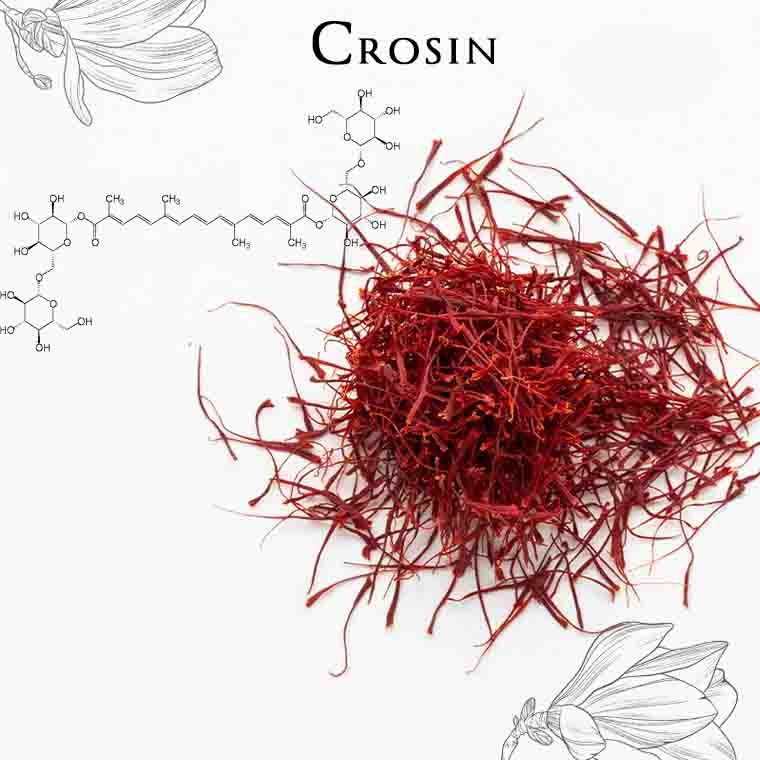Crocins and crocetin, two metabolites found in saffron, give medicinal properties to this plant. Metabolites are compounds that play a role in the metabolism of living cells. Saffron, as an ancient spice, not only has nutritional value but is also used in traditional medicine as a pain reliever and stress reducer.
Saffron contains important metabolites such as crocin, crocetin, safranal, and picrocrocetin, each responsible for specific characteristics of saffron. Crocin, as the most significant medicinal compound, has shown positive effects on various diseases in scientific studies.
Crocin and Neurological Diseases
This metabolite can help reduce anxiety and improve sleep. Research has shown that crocin and safranal affect the hormones dopamine, norepinephrine, and serotonin.
Crocin and Eye Diseases
Saffron is effective in treating certain eye diseases, such as age-related macular degeneration (AMD). Crocin prevents apoptosis and improves retinal function.
Crocin and Memory
Studies indicate that crocin and crocetin can enhance learning skills and memory.
Crocin and Antioxidant Activity
This compound influences oxidative stress by increasing the activity of antioxidant enzymes and may combat neuroinflammation associated with Alzheimer’s and Parkinson’s diseases.
Ultimately, the high cost of saffron is due to its medicinal properties and valuable metabolites that are used in the treatment of diseases.



